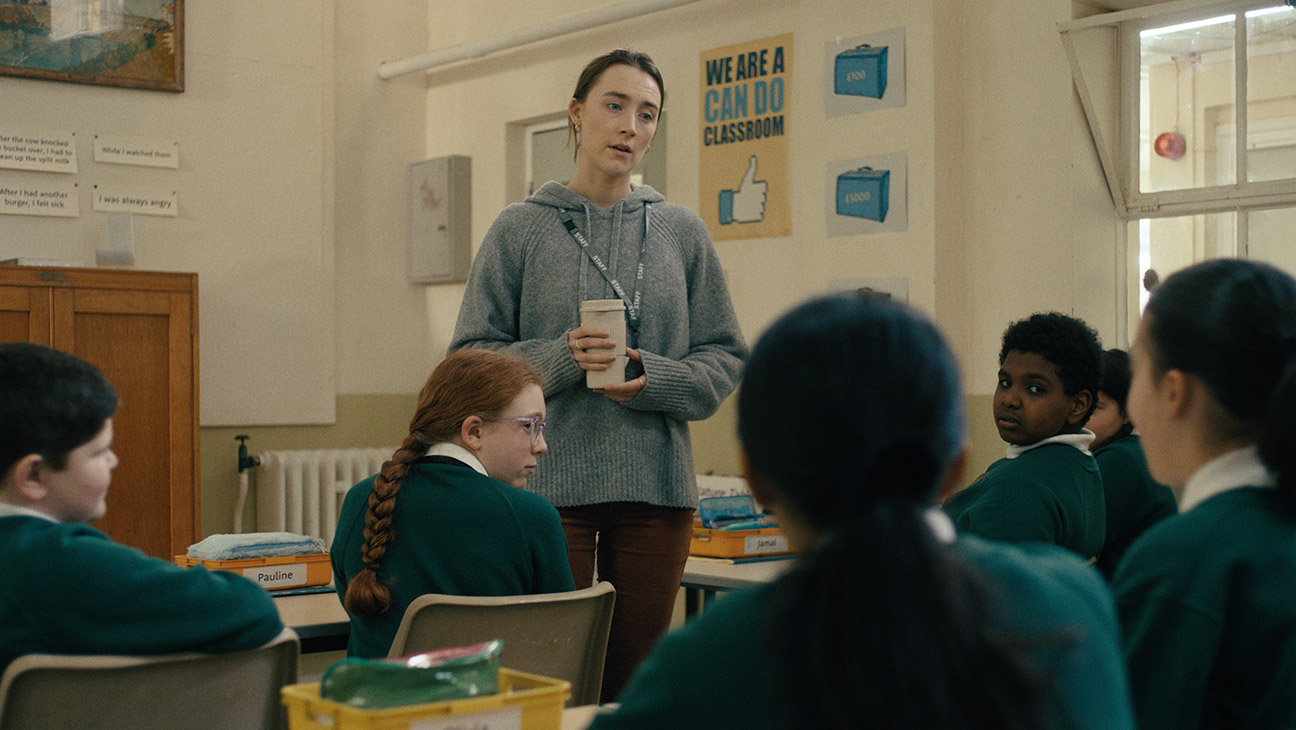UPDATE: The black comedy “Bad Apples,” featuring Saoirse Ronan, is generating buzz with its provocative themes and shocking twists. Released in select theaters today, the film explores the fraught dynamics between a struggling teacher and a challenging student, raising pressing questions about education and ethics.
In “Bad Apples,” Ronan plays Maria, an exhausted teacher at Ashton Brook Primary in an unnamed town in Somerset, England. Faced with a difficult student, Danny, portrayed by newcomer Eddie Waller, Maria resorts to extreme measures, leading to a darkly comedic yet troubling narrative. The film, directed by Jonatan Etzler, marks his first English-language feature and is based on the Swedish novel “De Oonsade” by Rasmus Lindgren.
The story begins with a field trip to a local cider factory, where tensions rise as Danny, a troubled loner, disrupts the class. Maria struggles to maintain control in a school plagued by budget cuts and insufficient support. After a series of escalating incidents, including a serious injury to another student, Maria finds herself in a precarious position when she attempts to confront Danny’s father, played by Robert Emms, who is overwhelmed by his son’s behavior.
As the plot thickens, Maria’s desperation leads her to a shocking decision: she locks Danny in her basement, aiming to provide him with the attention he desperately needs. This bold move spirals into a gripping exploration of morality, questioning the balance between individual needs and community responsibilities.
The film has garnered attention for its ethical dilemmas and dark humor, prompting audiences to engage in discussions about modern educational practices. Critics are praising Ronan’s performance, highlighting her ability to navigate the complexities of her character in a story that blends satire with serious themes.
“Bad Apples” not only sheds light on the challenges educators face but also raises questions about societal accountability. The film’s unexpected twists keep viewers on the edge of their seats, making it a must-watch for fans of dark comedy and social commentary.
As the film continues to screen across theaters, audiences are encouraged to reflect on the underlying messages about child welfare, education, and the sometimes blurry lines of morality. “Bad Apples” is proving to be a significant cultural conversation starter, resonating with viewers and critics alike.
Stay tuned for more updates as the film gains momentum in box offices and social media discussions. Don’t miss this urgent cinematic experience that challenges perceptions of education and personal responsibility.
